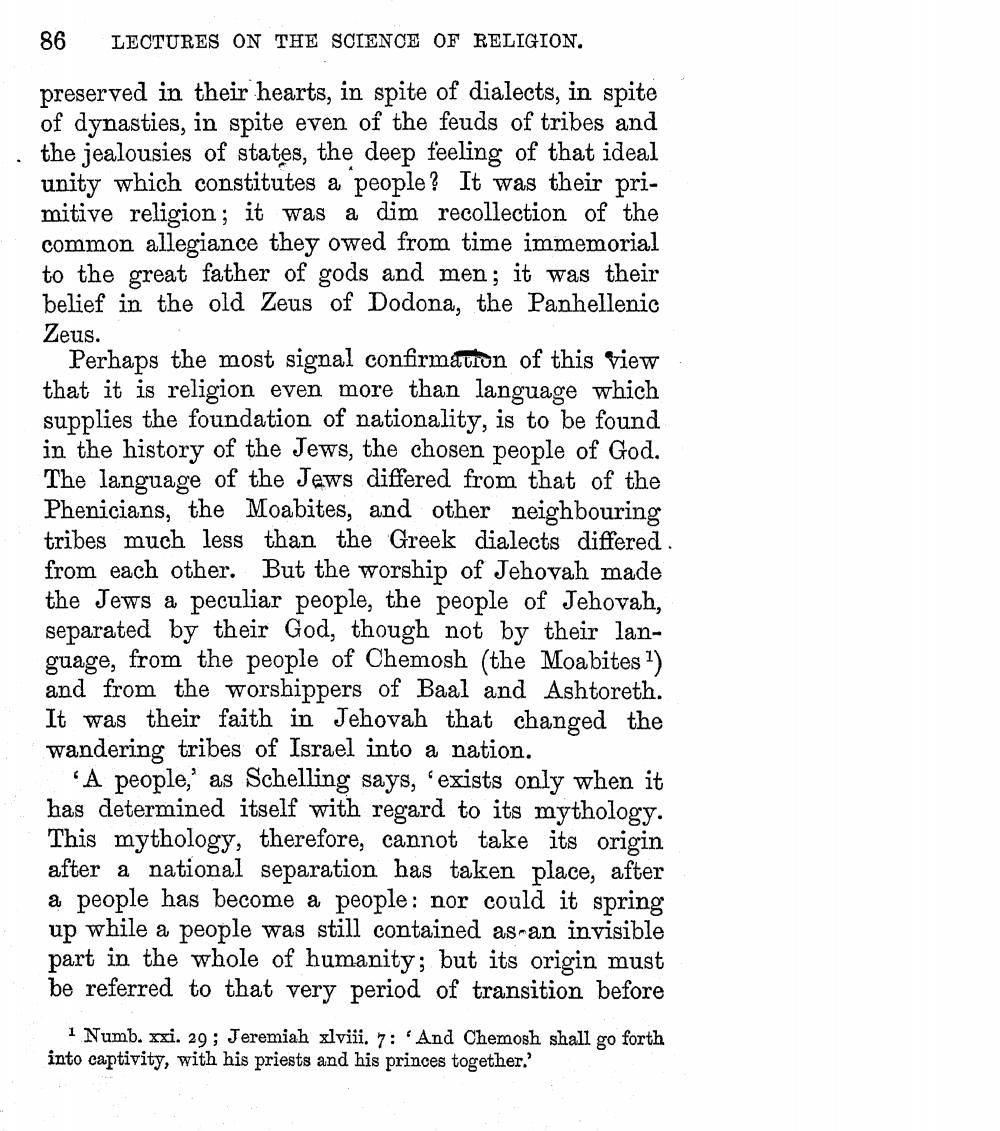________________
86 LECTURES ON THE SCIENCE OF RELIGION. preserved in their hearts, in spite of dialects, in spite of dynasties, in spite even of the feuds of tribes and the jealousies of states, the deep feeling of that ideal unity which constitutes a people? It was their primitive religion; it was a dim recollection of the common allegiance they owed from time immemorial to the great father of gods and men; it was their belief in the old Zeus of Dodona, the Panhellenic Zeus.
Perhaps the most signal confirmation of this view that it is religion even more than language which supplies the foundation of nationality, is to be found in the history of the Jews, the chosen people of God. The language of the Jews differed from that of the Phenicians, the Moabites, and other neighbouring tribes much less than the Greek dialects differed. from each other. But the worship of Jehovah made the Jews a peculiar people, the people of Jehovah, separated by their God, though not by their language, from the people of Chemosh (the Moabites?) and from the worshippers of Baal and Ashtoreth. It was their faith in Jehovah that changed the wandering tribes of Israel into a nation.
"A people, as Schelling says, 'exists only when it has determined itself with regard to its mythology. This mythology, therefore, cannot take its origin after a national separation has taken place, after a people has become a people: nor could it spring up while a people was still contained as-an invisible part in the whole of humanity; but its origin must be referred to that very period of transition before
1 Numb. xxi. 29; Jeremiah xlviii. 7: 'And Chemosh shall go forth into captivity, with his priests and his princes together.'




